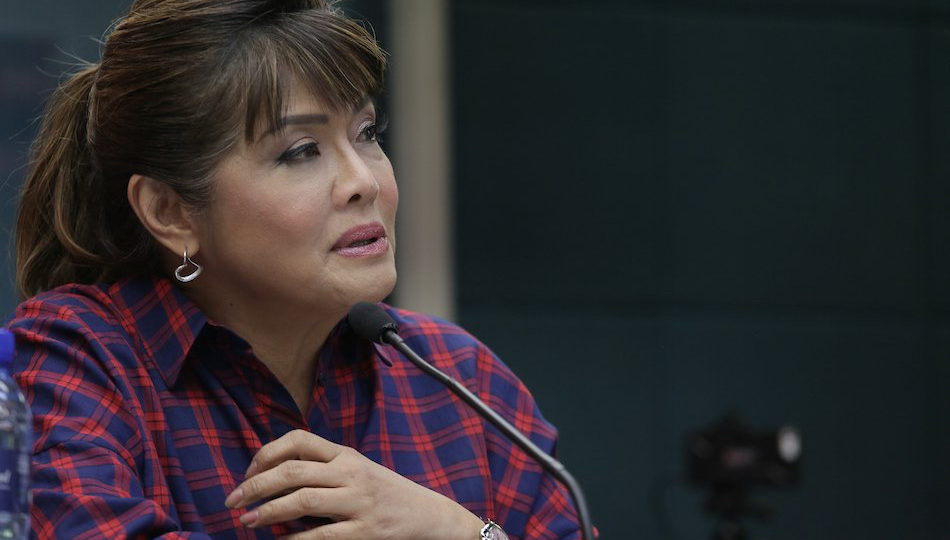Senator Imee Marcos said yesterday that it is “good” for the University of the Philippines (UP) to teach the history of the country’s martial law years to its students — as long as her family’s side of the story is told alongside it.
The state university announced on Monday that they will offer a general education module tackling the language, literature, and culture under martial law in the country, which was imposed by Imee’s father, former dictator Ferdinand Marcos, from 1972 to 1981. The three-unit subject, approved by the university council on Sept. 9, will be offered next semester.
“The course is [also]meant for students to decide whether ML (martial law) under (former President Gloria Macapagal-Arroyo) and (President Rodrigo) Duterte was/is still necessary,” Dr. Gonzalo Campoamor II, one of the proponents of the subject, told the Manila Bulletin.
“We expect that crucial issues about not only ML (martial law) but governance, in general, be discussed in class.”
Martial law under Ferdinand Marcos marked a decade of massive human rights violations, including torture, disappearances, and killings. It also crippled the economy, as underemployment spiked and the country amassed large foreign debt.
Just two years ago, the Philippine government awarded reparations to 75,730 victims of the Marcos dictatorship. The amount paid to the victims came from the US$20-million assets of the late president, ABS-CBN News reported.
In a video interview with the Philippine Daily Inquirer yesterday, Senator Marcos said she was supportive of the new course — with a caveat.
“I think it’s good to be studied,” she said. “But we [the Marcos clan] should at least be given a chance to narrate what happened during martial law, according to our knowledge. It’s important that the viewpoints of everyone are heard.”
Despite the atrocities committed by the government during her father’s reign, from Marcos’ perspective, her family is unfairly painted as a villain, something she believes wouldn’t be happening if only they more regularly defended themselves (seriously).
“I hope others will also listen [to our side of the story]. Actually, I think it’s also the fault of our family because we were quiet and became tired to speak. We no longer share what we know. We no longer tell our story because it already became tiresome,” she said.
The Marcoses have been accused of falsifying history by spinning the narrative that martial law was a prosperous and peaceful time in Philippine history. Former Senator Bong Bong Marcos even hosted a Facebook video interview last year with his father’s former defense minister, Juan Ponce Enrile, where the latter denied that the government arrested its critics during the martial law era.
Read: Former Marcos defense minister says PH was ‘peaceful,’ Filipinos ‘free’ during martial law
So where do you stand on this? Do the Marcoses have a right to telling students “their side” of the martial law story? Tell us by leaving a comment below or tweeting to @CoconutsManila.





